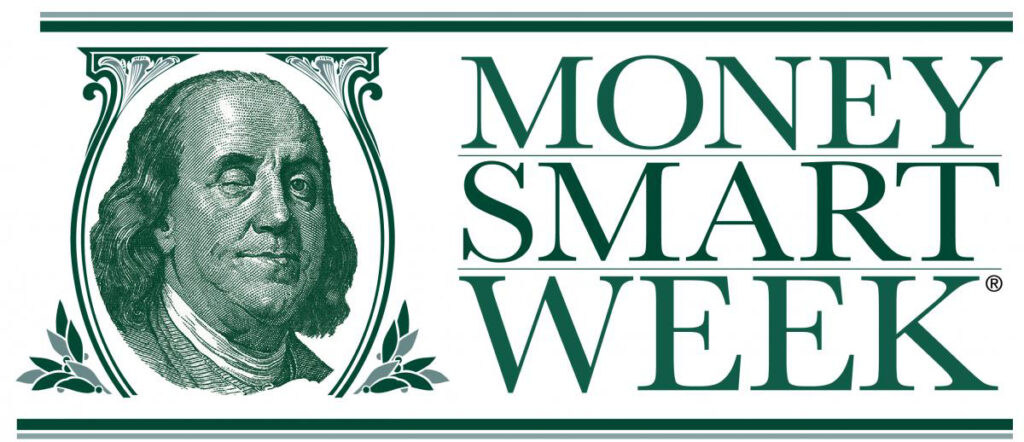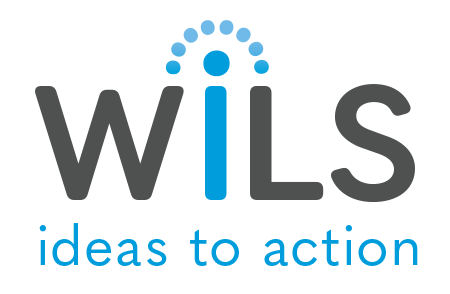
Money Smart Week is April 23-30 this year, and Wisconsin libraries continue to be involved in planning and coordinating a Big Read and other events and resources to promote financial literacy to their communities! Lori Burgess, Support Services Coordinator at Fond du Lac Public Library, has been actively involved with Money Smart Week for many years and we were lucky to have the opportunity to interview her about her role and experience with promoting financial literacy in Wisconsin, and how libraries can get involved.
If you have any questions about this interview or anything related to Money Smart Week, please contact Sara Gold at sgold@wils.org.
Tell us a bit about a day in your life at FDLPL.
As the Support Services Coordinator at FDLPL, I supervise approximately 28 people and oversee Technical Services and Circulation. On a daily basis, I am monitoring the flow of materials throughout our buildings–from ordering, cataloging, and processing in Tech Services to materials being checked out, checked in, shelved and withdrawn in Circulation. The Circulation staff also manage our branch library, FDLPL Express, which is open 28 hours per week and our used bookstore, Chapter 52, which is open 15 hours per week.
This means that on any given time I may be trouble-shooting a self-check computer, negotiating a payment plan with a patron, figuring out how we can rearrange shelving to fit more materials into a given space, working at a service desk, dabbling in adult programming, managing volunteers, or generating statistics for the director.
In addition to my regular duties at the library, I also on several boards, including our local Women in Management chapter, a PEO (Philanthropic Educational Organization) chapter, the FDL Women’s Roundtable discussion group, the Technical Services Section of the Wisconsin Library Association and I serve on the Governor’s Council on Financial Literacy.
Thankfully, my supportive husband and teenage daughter no longer expect me to make dinner every night!
How did you get involved in the Big Read activities for Money Smart Week?
Before I became the Support Services Coordinator, I was a Reference Librarian at FDLPL. Besides working at the service desk and collection development, I helped with adult programming. The library started participating in Money Smart Week and financial literacy programming in 2007 so when the Fox Cities Money Smart Week planning committee invited us to participate in their Big Read initiative in 2010, I jumped at the chance to expand our programming to kids. At the time, the Big Read was run by credit unions, bankers, and a book store. I strongly believe children’s librarians have a natural expertise in storytimes and selecting age-appropriate books for kids, so I pushed for libraries to get involved.
Once the Wisconsin Dept of Financial Institutions (DFI) was able to contribute financially to the program, it didn’t take me long to send a message to WISPUBLIB to invite libraries across the state to participate.
DFI has been amazed by the efficiency of the Wisconsin library community. With a few emails and by utilizing the state delivery system, we were able to order copies in bulk and efficiently deliver thousands of books across the state. Unfortunately, demand has outgrown what DFI can fund, so bringing WiLS into the mix to accept money from a variety of places and place one, large cooperative order allows us to get the maximum discount for everyone who participates.
Wisconsin’s success with the Big Read program is being noticed. Michigan, Illinois, and Iowa also have Big Read programs in their states. For 2016, I was able to connect with the Illinois coordinator to contribute to the cooperative purchase through WiLS and I am cautiously optimistic that Iowa might join us next year. Purchasing 5,000 copies of a single book does not go unnoticed by publishers.
Tell us how libraries can connect with their communities through MoneySmart? Do you have any examples you can share?
It is a common phenomenon that partnerships will be created and strengthened through Money Smart Week events. When a library asks a local UW-Extension instructor, high school teacher, lawyer, or CPA to present a program at the library for Money Smart Week, magic begins to happen.
The library and presenter promote the program through their respective channels (posters, newsletters, press releases, web announcements, social media, etc.) and –assuming the program has a catchy title– people attend. The presenter is happy they were able to share their expertise, the library is happy to host an educational program they did not have to teach, and the patron is happy to receive some much needed information.
The organizational partnerships and individual connections often continue throughout the year. In FDL, the UW-Extension staff often host educational workshops at the library. I am able to personally refer patrons to specific staff within our social service agencies (Medicare questions to a county senior benefits specialist, bankruptcy questions to a nonprofit credit counselor, etc.). And in turn, they refer patrons to the library to utilize our services.
Money Smart Week provides a common goal for library staff and other organizations to meet. Along the way, everyone involved establishes professional networks and personal connections.
How can libraries get involved in MoneySmart Week activities including the Big Read?
The Federal Reserve Bank of Chicago created Money Smart Week as a financial education initiative. It began in Chicago and has grown into a national initiative with several major partners, including the American Library Association. They also host moneysmartweek.org where consumers can find local events and unbiased information about money. As a partner, there is a lot of supporting information–from downloadable logos to specific guidelines for presenters (such as no selling or followup contact with attendees); as well as marketing strategies, programming ideas, best practices. Libraries are encouraged to register and enter their local events.
Wisconsin is one of the most active Money Smart Week states in the country. David Mancl at the Wisconsin Dept of Financial Institutions tracks and supports local planners across the state. He probably knows someone in your community or region who is also interested in financial education and can help you connect with them. Contact David at (608) 267-1713 or David.Mancl@dfi.wisconsin.gov.
